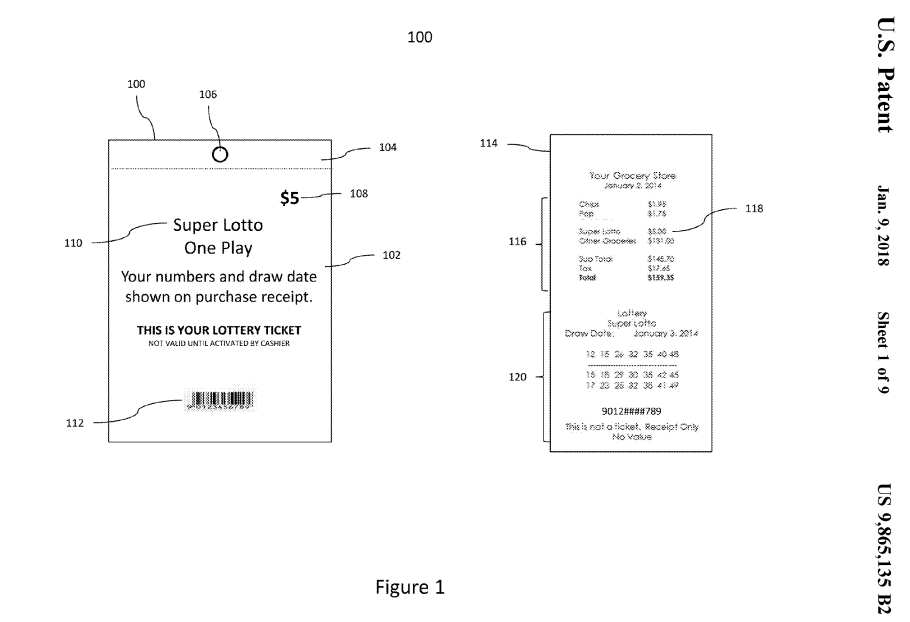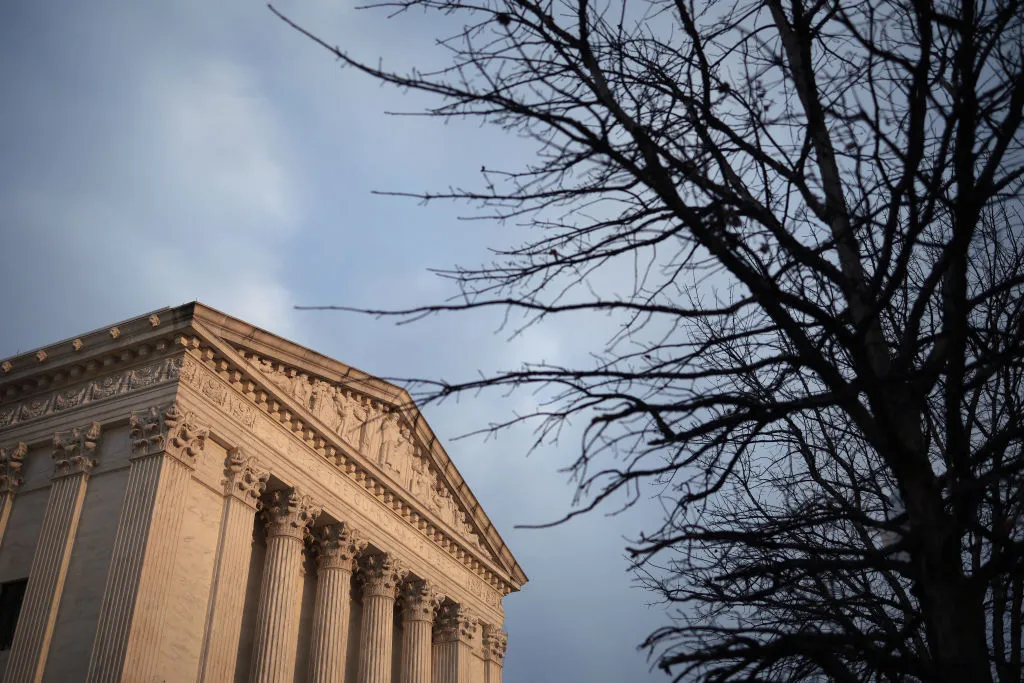Today is election day. Americans who did not mail in their ballots or otherwise vote early are at the polls casting their votes for president (technically for electors for president), the Senate (in most states), the House of Representatives, and thousands of state and local offices and ballot measures. Given all of the potential combinations, the number of possible outcomes is staggeringly large. In today’s column, I’ll focus on a tiny subset: the eight possible configurations that could result at the federal level.
Why eight? There are three federal elections: one for president and one each for the Senate and the House. We can treat each as binary: either the Democrats or the Republicans gain control. (A tie is possible in the Senate, but then Senate control goes to whichever party wins the presidency and thus the vice presidency, in virtue of that officer’s ability to cast a tiebreaking vote.) With two outcomes possible in each of three elections, we have 2 x 2 x 2 = 8 possibilities. The differences matter a great deal.
Unified Government
Two of the eight possible outcomes will result in unified government, with the same party in control of the presidency and both chambers of Congress. In recent years, this result is not uncommon, especially when the presidential candidate has coattails. Not infrequently, one sees unified government for the first two years of a presidential term, interrupted by divided government following the midterm election, when traditionally the incumbent president’s party is at a disadvantage.
Accordingly, major legislation that is not bipartisan is typically enacted during the first two years of a presidential term. That pattern holds for the last three presidents, each of whom came into office with his party controlling both Congressional chambers but then lost control of one chamber after midterm elections. The Patient Protection and Affordable Care Act (Obamacare) was enacted during the second year of President Obama’s first term; substantial tax cuts and de facto repeal of the individual mandate of Obamacare were enacted during President Trump’s first year in office; and President Biden signed major legislation responding to the COVID pandemic, addressing infrastructure, and combating climate change (in the somewhat misleadingly titled Inflation Reduction Act) during his first two years in office.
Unified government under either a President Harris or a President Trump would also likely lead to major legislation. A President Harris might sign legislation codifying a national right to abortion, providing support for first-time homebuyers and small businesses, reforming immigration to increase border security and absorb more refugees, and continuing financial aid to Ukraine. A President Trump might sign legislation restricting abortion, funding mass deportation of undocumented immigrants, repealing authorization for regulations aimed at curbing climate change and other pollution, and extending the tax breaks set to expire at the end of 2025.
Some of those measures could not be passed with fewer than 60 votes in the Senate, and there is no realistic scenario in which either party will have that many seats in the next Senate. Accordingly, in order to obtain maximum support for the president’s legislative agenda, the Senate majority would need to be willing to abolish the filibuster.
Divided Government
Despite the recent pattern, tight polling suggests there is a good chance that the next president will face at least one chamber of Congress in the hands of the other party. Federal legislation will then be substantially more difficult to enact, although some bipartisan measures could make it through.
If the president’s party controls one but not the other chamber of Congress, it makes a difference which chamber. That’s because the Senate, unlike the House, has the capacity to confirm presidential nominees to judicial and executive offices. Traditionally, even in periods of divided government, the Senate has given the president substantial deference with respect to executive appointments, but following the Republican Senate’s refusal even to consider President Obama’s nomination of Merrick Garland to the Supreme Court vacancy that opened following Justice Antonin Scalia’s death in February 2016, the prospect of a successful Supreme Court appointment when different parties hold the presidency and the Senate has dimmed considerably.
Indeed, given polarization over the many issues addressed by the judiciary, it is possible to imagine a hostile Senate refusing to confirm anyone to the lower federal courts as well. We could be entering a period in which the federal judiciary shrinks in size whenever the president’s party does not hold the Senate, bouncing back only when it does. Such a pattern would likely lead to increased ideological and political polarization of an already polarized judiciary.
It seems less likely that the Senate would block a great many of an opposing party’s president’s executive branch nominees. That’s partly because some of those positions are lower stakes, partly because they are not lifetime appointments (as judicial appointments are), and partly because blocking confirmation of a president’s nominees is not necessarily an effective means of obstructing a president’s agenda.
“I like acting,” President Trump famously said in 2019, by which he meant that he liked having acting officials in roles for which they were not Senate-confirmed because that gave him greater flexibility and presumably greater control over the officials. Although the Federal Vacancies Reform Act places some limits on the use of acting officials, those limits are difficult to enforce and do not, in any event, very substantially constrain the president.
Asymmetrical Divided Government
Thus far I have analyzed the possible configurations mostly on a symmetrical basis, but the parties differ in that, in recent years, Republicans have been much more willing to play hardball than Democrats have. That tendency will likely manifest itself in many ways. Here I’ll focus on two.
First, even if Vice President Harris wins the presidential election, there is no guarantee that she will take office. Former President Trump and his allies have spent years plotting ways to challenge the result of the election in the event that he loses. By telling and amplifying lies about non-citizens voting and placing loyalists in state and local government, Trump has been laying the groundwork to succeed where his efforts to overturn the 2020 election result failed.
Whether those efforts succeed could depend on the outcome of the congressional elections. The Electoral Count Reform Act (ECRA) of 2022 assigns federal courts the role of ensuring that states properly certify election results and declares that the courts’ determinations regarding certification are binding on Congress. However, ECRA does not specify that a congressional refusal to abide by such determinations is itself open to judicial challenge. Indeed, even if ECRA did so specify, there would be a substantial risk that the courts, including the Supreme Court, would find that Congress has the last word.
How is that last word determined? Another provision of ECRA limits the grounds on which state electoral slates can be challenged, but one could imagine that Republicans in Congress who are subservient to or afraid of Trump would accept bogus challenges. Under that same provision of the ECRA, it takes a majority of each house of Congress to sustain a challenge to a state’s electors. With President Trump bragging that he and House Speaker Mike Johnson have a secret plan to ensure Trump’s installation in the Oval Office, a Harris victory at the polls might not be enough to permit her to take office unless Democrats retain control of the Senate or win the House.
That brings us to the other asymmetry between the parties’ tactics. Suppose Harris wins the election and Democrats win control of one chamber of Congress, which would ensure that Harris can actually take office even if Republicans in one chamber act unlawfully. Very soon after her inauguration, President Harris could face an economic crisis generated by Republican obstructionism in the chamber they controlled.
That’s because the debt ceiling—which has been suspended since June of last year—will come back into effect on January 2, 2025. At that point, the Secretary of the Treasury will engage in what have come to be known as “extraordinary measures” to enable the government to pay its bills, but these will provide only a few months of breathing space. At some point in her first year in office, President Harris will need to sign legislation raising, suspending, or repealing the debt ceiling. However, since the Obama administration, Republicans have been eager to use the debt ceiling to pressure Democratic presidents for concessions they cannot win in the ordinary legislative process by threatening a first-ever federal default on its obligations and potential economic ruin.
Consequently, to ensure that a victorious Harris actually takes office, Democrats need to secure at least one house of Congress. To ensure that she avoids an economic crisis generated by Republican obstructionists, Democrats must run the table. Given the Senate map, that is a very tall order.



























